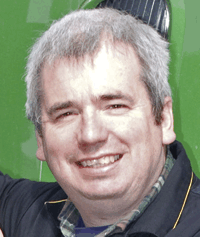Farmer Focus Arable: Philip Bradshaw’s wheat drilling catches up

Wheat drilling finally caught up with the sugar beet harvesting schedule last week. Most earlier-sown crops are up and looking reasonable; a few heavier areas are slow to emerge and are being troubled a bit by slugs, despite the generally dry season.
Everything has been carefully consolidated, with half-term falling nicely for sons Marcus and Edward to take over rolling duties and earn some extra money.
Twenty years ago, when Jayne and I began farming in our own right, we used a set of 6m rolls. Despite having increased the capacity of the rest of our equipment, sometimes substantially, our rolls are still no wider.
Where necessary we have sprayed pre-emergence flufenacet-based products as part of an integrated cultural and chemical blackgrass control strategy. We have also been busy spraying oilseed crops with fungicide/trace element/insecticide mixtures.
Tailoring establishment methods carefully to site has succeeded, with most of our oilseeds looking quite good. However the entire pigeon population of Cambridgeshire appears to have been scrambled and our army of birdscarers is already deployed on some farms.
Potato harvesting is complete. The field at the Newborough farm had to be irrigated immediately pre-harvest which, following heavy use through the summer, took our storage level down, revealing previously unexplored depths. We really need some more rain before we can start refilling reservoirs with winter water.
With the annual sugar beet stand-off over, the crop will be grown here next year. It was again a close call, and as ever I find this whole culture of indecision annoying, unprofessional and embarrassing for the industry. It really is time to develop a sustainable deal for growing sugar beet over the coming years.
For more from Philip Bradshaw click here.
For our other Farmer Focus Arable writers click here.

